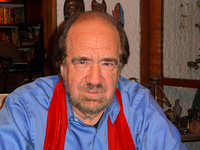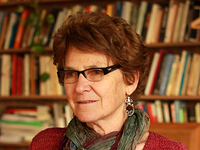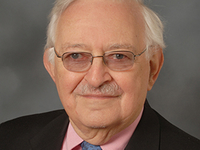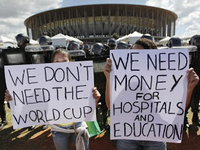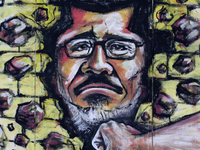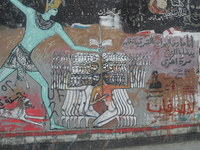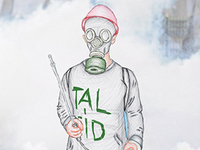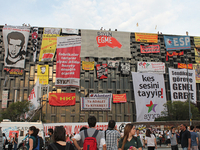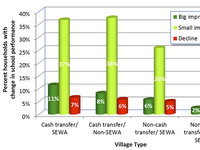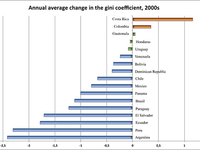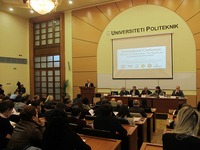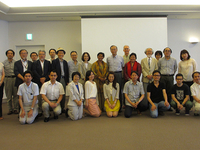GD 3.5 - November 2013
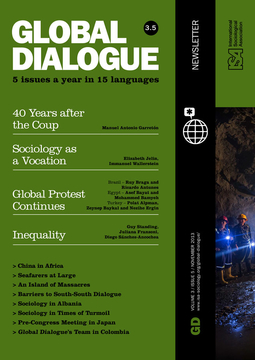
Global Dialogue is available in multiple languages!
Select the language to download the issue.
Editors:
Michael Burawoy.
Associate Editor:
Margaret Abraham, Tina Uys, Raquel Sosa, Jennifer Platt, Robert Van Krieken.
Managing Editors:
Lola Busuttil, August Bagà.
Consultants:
Abigail Andrews.
Media Consultant:
Gustavo Taniguti, José Reguera.
Consulting Editors:
Izabela Barlinska, Louis Chauvel, Dilek Cindoğlu, Tom Dwyer, Jan Fritz, Sari Hanafi , Jaime Jiménez, Habibul Khondker, Simon Mapadimeng, Ishwar Modi, Nikita Pokrovsky, Emma Porio, Yoshimichi Sato, Vineeta Sinha, Benjamín Tejerina, Chin-Chun Yi, Elena Zdravomyslova.
REGIONAL EDITORS
Arab World: Sari Hanafi , Mounir Saidani.
Brazil: Gustavo Taniguti, Juliana Tonche, Andreza Galli, Renata Barreto Preturlan, Ângelo Martins Júnior, Lucas Amaral, Celia Arribas, Rafael de Souza.
Colombia: María José Álvarez Rivadulla, Sebastián Villamizar Santamaría, Andrés Castro Araújo, Katherine Gaitán Santamaría.
India: Ishwar Modi, Rajiv Gupta, Rashmi Jain, Jyoti Sidana, Uday Singh, Ritu Saraswat.
Iran: Reyhaneh Javadi, Najmeh Taheri, Faezeh Khajehzade, Nastaran Mahmoodzade, Saghar Bozorgi, Zohreh Sorooshfar.
Japan: Kazuhisa Nishihara, Mari Shiba, Kousuke Himeno, Tomohiro Takami, Yutaka Iwadate, Kazuhiro Ikeda, Yu Fukuda, Michiko Sambe, Yuko Hotta, Yusuke Kosaka, Yutaka Maeda, Shuhei Naka, Kiwako Kase, Misa Omori.
Poland: Mikołaj Mierzejewski, Karolina Mikołajewska, Krzysztof Gubański, Adam Mueller, Patrycja Pendrakowska, Emilia Hudzińska, Kinga Jakieła, Julia Legat, Kamil Lipiński, Konrad Siemaszko, Zofi a Włodarczyk.
Romania: Cosima Rughiniș, Ileana-Cinziana Surdu, Monica Alexandru, Adriana Bondor, Ramona Cantaragiu, Miriam Cihodariu, Monica Nădrag, Cătălina Petre, Mădălin Rapan, Lucian Rotariu, Alina Stan, Mara Stan, Balazs Telegdy, Elena Tudor, Cristian Constantin Vereș.
Russia: Elena Zdravomyslova, Anna Kadnikova, Elena Nikiforova, Asja Voronkova.
Taiwan: Jing-Mao Ho.
Turkey: Aytül Kasapoğlu, Nilay Çabuk Kaya, Günnur Ertong, Yonca Odabaş, Zeynep Baykal, Gizem Güner.
Ukraine: Svitlana Khutka, Olga Kuzovkina, Anastasia Denisenko, Mariya Domashchenko, Iryna Klievtsova, Lidia Kuzemska, Anastasiya Lipinska, Myroslava Romanchuk, Ksenia Shvets, Liudmyla Smoliyar, Oryna Stetsenko, Polina Stohnushko.
GD 3.5 - November 2013
Editorial
South-South Collaboration
Traveling through Latin America, one quickly discovers its diversity. In this issue Juliana Franzoni and Diego Sánchez-Ancochea point to a broad continental turn against inequality. Nevertheless, even in this realm, differences are stark. Thus, Chile and Uruguay lie at the opposite ends of the spectrum between neoliberalism and social democracy. When it comes to social issues, the first is in the dark ages while the second is at the forefront of liberal legislation on drugs, gay rights, and abortion. Uruguay wiped out its indigenous population, and is racially and ethnically far more homogeneous than, for example, Peru. If in Uruguay the Tupamaros have entered the ruling left-wing coalition, in Peru and Colombia, the guerrilla movement is still waging an extra-parliamentary war. Indeed, Colombia is a living paradox – long-standing democracy combined with unregulated violence – so that Dejusticia, an organization of brilliant lawyers and social scientists, exploits Colombia’s liberal constitution to defend indigenous and other communities against violence.
Differences notwithstanding, Latin American social scientists have created patterns of continental collaboration. Thus, Chilean sociologist, Manuel Antonio Garretón, underlines the historic importance of academic and intellectual exchanges among Latin American countries, even during the dictatorship. Here South-South dialogue is more than an aspiration to develop a sociology in the South, of the South and for the South; it is a reality, although its very intensity can make dialogue beyond the region more difficult. Eliana Kaimowitz describes the difficulties Dejusticia experienced in organizing a workshop for young human rights advocates from all over the Global South. The first problem was to get the participants to Colombia. The major travel routes passed through Northern countries, requiring difficult-to-obtain transit visas, on top of which it was often difficult to obtain a Colombian visa itself. By contrast, coming from the Global North I did not even need a visa for Colombia. Moreover, the workshop was only possible due to lavish funding from the Ford Foundation. It is commonplace for Northern resources to be deployed to develop Southern research as in Ching Kwan Lee’s study of China in Africa, Helen Sampson’s study of migrant seafarers and international shipping, or Guy Standing’s study of basic income grants in India. Not surprisingly, elite Northern universities become a magnet for Southern talent.
Our two contributors to “Sociology as a Vocation” – Elizabeth Jelin and Immanuel Wallerstein – have dedicated themselves to promoting South-South as well as North-South dialogues. Just as Northern sociologists are by no means homogeneous – some more sensitive to global inequalities than others – so the South, too, is not homogeneous, with a minority being able to reach beyond national boundaries while the majority remains embedded in the local. If global inequalities limit South-South collaboration, so other resources, not least social media, become critical in connecting social movements – explored in this issue for Brazil, Egypt, and Turkey – as they do for sociologists through such platforms as our own Global Dialogue.
Michael Burawoy, editor of Global Dialogue
Global Dialogue can be found in multiple languages.
Submissions should be sent to globaldialogue@isa-sociology.org.

